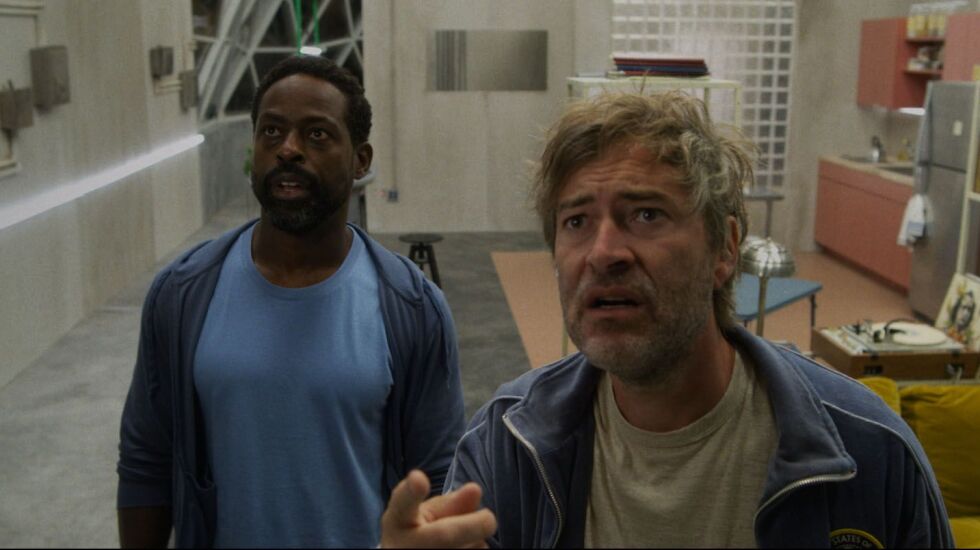
The smallest details in the post-apocalyptic social satire “Biosphere” are precise and deliberate and carry meaning, whether it’s a character reading a certain book or the buddy-movie playing on video or the references to a famous line from a certain dinosaur blockbuster or the ongoing discussion about the relationship between the Super Mario Bros. These neat little notes are dropped like so many breadcrumbs along the trail and offer some clever hints about the larger storyline, but that brings us to where “Biosphere” falls short: The Big Picture it is painting remains a bit too fuzzy and frustratingly ambiguous to the end.
“Biosphere” is a two-hander that marks the feature-length directorial debut of the talented Mel Eslyn, a frequent collaborator with Lynn Shelton and Mark and Jay Duplass. In a premise that might have worked better as a stage work in a small theater, or as a short film, the entire story is set within the confines of a loft-condo-sized bio-dome, where Ray (Sterling K. Brown) and Billy (Mark Duplass, who co-wrote the screenplay with Eslyn) are apparently the last two remaining humans on the planet. Outside is nothing but blackness; inside the lights are controlled by a timer to simulate night and day.
We soon learn Ray and Billy have been best friends forever. Ray is smart, serious and scientific; Billy comes across as something of a goof who always seems a beat behind Ray in their conversations as they go for daily jogs inside the bio-dome, tend to their hydroponic garden and tiny pool of fish, play video games and generally try to remain upbeat, even though they’re stuck in a kind of purgatory. We eventually learn Billy was the president of the United States and Ray was a key adviser — and Billy was at least partially responsible, perhaps solely responsible, for whatever cataclysmic event led to the end of the world as we know it.
And then two things happen, and we will tread lightly here because “Biosphere” contains one of the most surprising and disturbing and sure to be polarizing twists of any movie in recent years. The first disturbance comes in the form of a green light that appears in the otherwise pitch-black sky, a light that gradually comes closer and closer. The second disturbance starts with the death of a fish and then escalates into something gonzo bonkers bananas, opening the door to discussion about … well, about a half-dozen hot-button topics that lead to intelligent debate as well as insanely stupid reactions these days. What transpires after that is absurd, provocative, cryptic and intermittently funny and even touching — but it’s also maddeningly incomplete.
Director Eslyn and cinematographer Nathan M. Miller do a remarkable job of giving “Biosphere” a certain fluidity and openness, despite the closed confinement; there are some beautiful extended shots. As you’d expect, Duplass and Brown are terrific together; we instantly believe these two as best friends who drive each other crazy but would do anything for one another. Alas, there’s not enough story here to warrant a feature-length film, and the ending feels like a copout.







